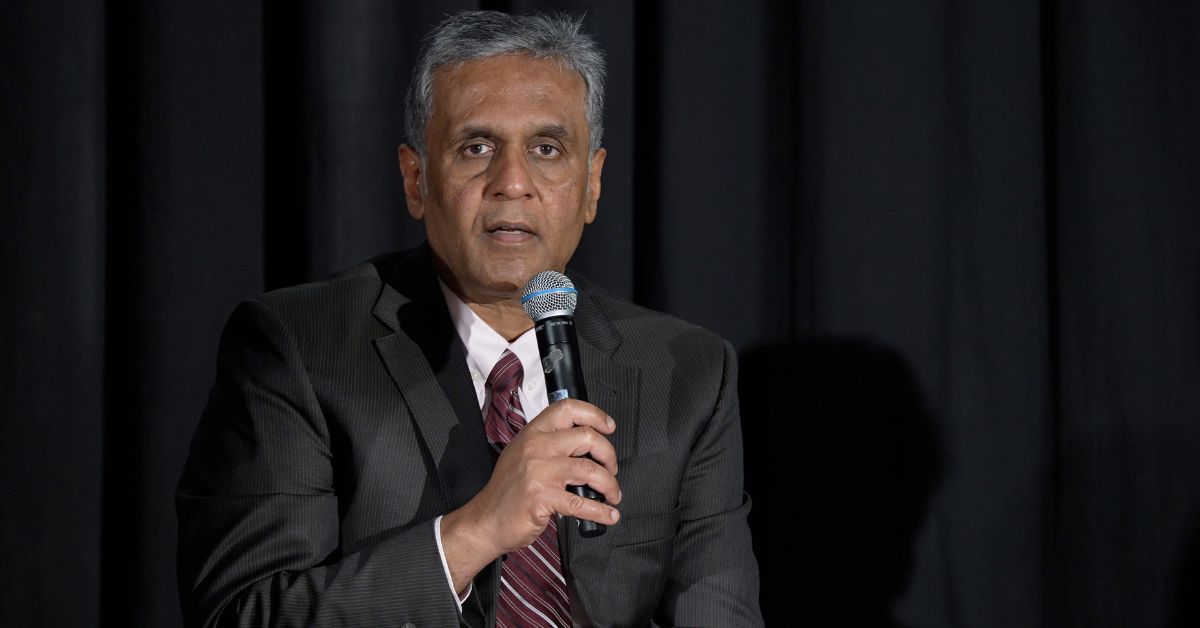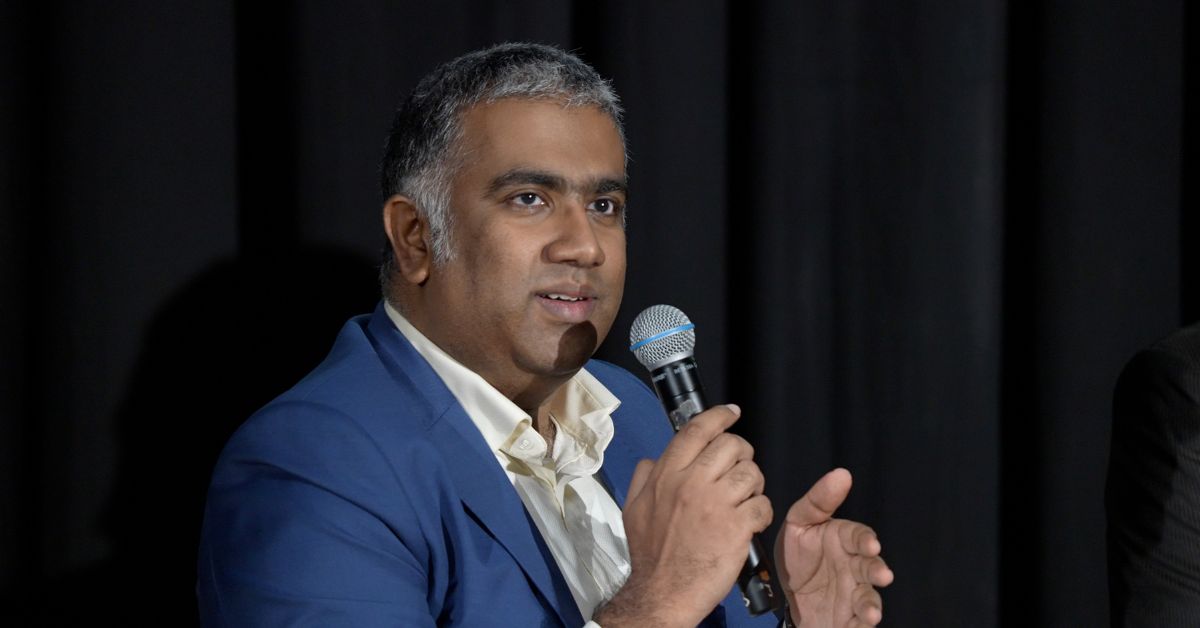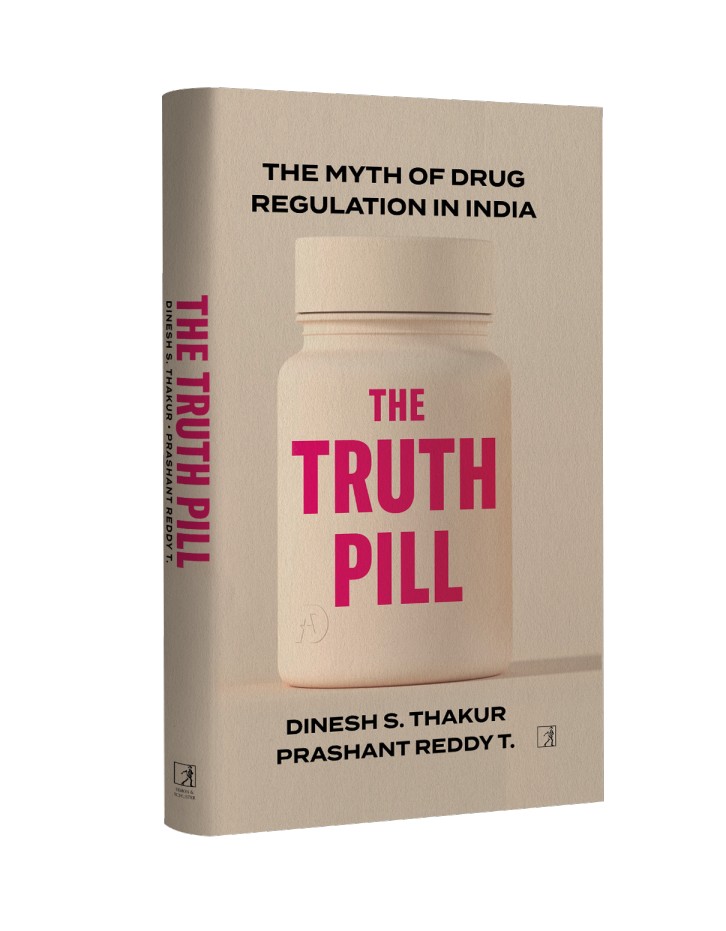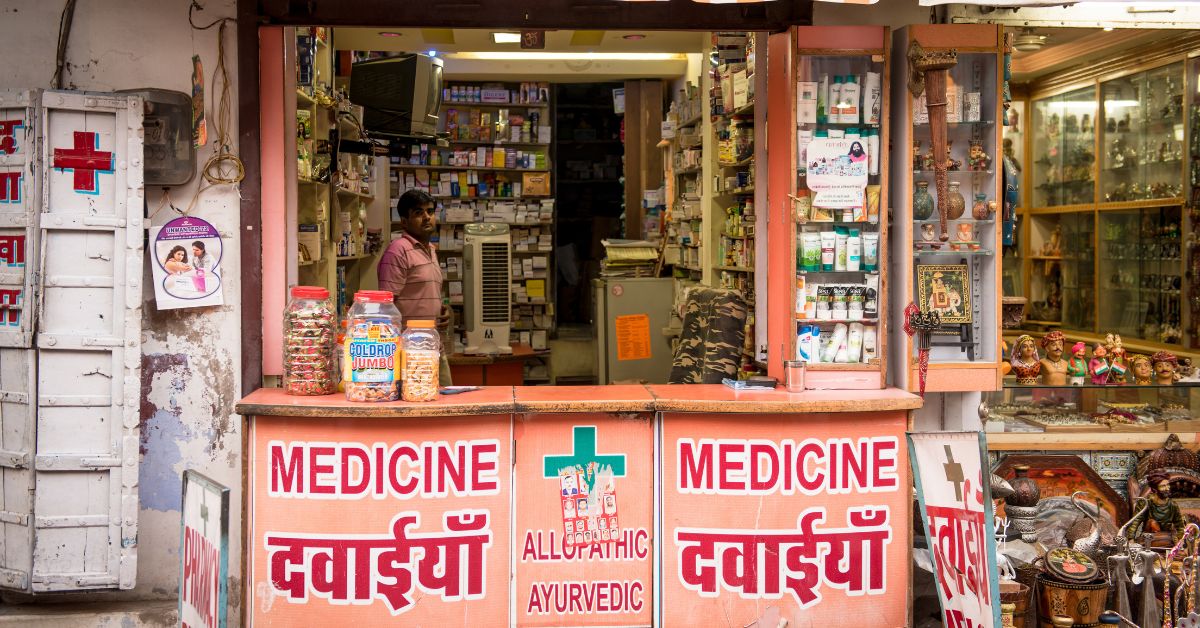[ad_1]
Set off warning: Descriptions of sickness, demise of youngsters
Two-year-old Fatoumatta was among the many 69 youngsters who died because of acute kidney failure in The Gambia, in a sequence of such circumstances since July this yr. Her father stated he took her to the hospital after she developed a fever. Right here, she was recognized with malaria and prescribed a syrup.
She was lifeless throughout the week.
In an interview with Africa Information, her father recalled, “She couldn’t eat something and was oozing blood from her nostril and mouth….In some unspecified time in the future, I used to be praying for God to take her life.”
These deaths had been linked to 4 cough syrups manufactured by Indian agency Maiden Prescribed drugs, based mostly in Sonepat, Haryana.
Earlier this month, the World Well being Organisation (WHO) recognized these medicine as Promethazine Oral Answer, Kofexmalin Child Cough Syrup, Makoff Child Cough Syrup and Magrip N Chilly Syrup.
WHO said that the syrups had been discovered with “unacceptable quantities of diethylene glycol (DEG) and ethylene glycol”, and expressed considerations that whereas these had been solely recognized in The Gambia to this point, they may have been “distributed…to different international locations or areas”.
No less than 70 youngsters have died in #Gambia 🇬🇲 after ingesting a cough syrup that had been made in #India 🇮🇳 in accordance with the @WHO
The incident is shaking the status of medicines produced in India, typically thought-about the pharmacy of the world. pic.twitter.com/SKzYjhdaYN— FRANCE 24 English (@France24_en) October 20, 2022
Resultant investigations, together with a report by The Tribune, claimed that Maiden had “cast check reviews of uncooked supplies reminiscent of propylene glycol”. Their investigation additionally confirmed that the syrups, created from the identical uncooked materials, allegedly “confirmed totally different expiration dates” and that the agency “didn’t have the services to check the uncooked materials”.
Even those that have no idea the intricacies of drug manufacturing and regulation in India could be alarmed at how a rustic considered “the world’s pharmacy” may let medicine go with so many purple flags.
This turns into much more regarding once we perceive that this isn’t the primary such case, by any means, that harmless lives have been put at stake as a consequence of doubtful manufacturing practices.
“In 2020, cough syrup laced with excessive quantities of DEG brought about the demise of 12 youngsters in Ramnagar. As many as 33 youngsters died after receiving cough medicines contaminated with DEG in Gurgaon in 1998,” famous The Lancet.
And of their e-book The Fact Tablet: The Delusion of Drug Regulation in India, authors Prashant Reddy T and Dinesh Thakur spotlight many different such circumstances in addition to how guidelines, laws, and legal guidelines surrounding high quality checks and drug manufacturing in India have been flawed, misused, misinterpreted and even ignored.
The e-book, says Thakur, is “an earnest effort…to coach our fellow women and men in regards to the fact and actuality of our drug provide”.
And the authors are not any novices with regards to this subject.
Thakur is a public well being activist considered a “pharma crusader”, most notably for exposing his former employer Ranbaxy Laboratories for its failure to conduct correct security and high quality assessments, in addition to for falsifying information to obtain approval for generic medicine.

“I went to highschool at Osmania College for my Bachelor’s in Chemical Engineering after which to the College of New Hampshire for my Masters. I used to be employed by Bristol-Myers Squibb for eleven years earlier than coming to work in India for Ranbaxy. The remaining is historical past,” he tells The Higher India.
Thakur served because the director and world head of analysis data and portfolio administration on the agency. Along with his supervisor Dr Raj Kumar, he reported his findings of scrupulous practices, first, to the board of administrators at Ranbaxy, and later — after the pharma firm refused to take motion — to the US Meals & Drug Administration (FDA).
Because of Thakur’s efforts, in 2013, Ranbaxy USA Inc pleaded responsible to promoting adulterated medicine, failing to report medicine that didn’t meet specs, and falsifying statements to the federal government, amongst others. The corporate paid a whopping $500 million to resolve the claims, which was on the time the most important monetary penalty paid by any generic drug maker within the US for violating FDCA norms.
In the meantime, Reddy is a lawyer with a eager curiosity in mental property legislation, drug regulatory legal guidelines, and transparency legal guidelines.
After finishing his levels from NLU and Stanford, he practised as a lawyer in IP litigation groups throughout New Delhi, labored as a analysis affiliate, and taught mental property rights and administrative legislation. Since 2020, he has labored as an advisor at a affected person advocacy group arrange by Thakur and in addition serves as a director for the Thakur Household Basis Inc, an organisation that funds analysis on public well being and civil rights in India.
About his choice to quit a profession at a legislation agency to hitch Thakur’s advocacy, he says, “Nicely, it isn’t day by day that you just get a chance to work with a whistleblower on a difficulty as sophisticated as drug regulation. By the point I began working with Dinesh, I had some expertise in coping with drug regulatory points whereas practising legislation, however even I used to be not ready for all that we uncovered throughout the course of writing The Fact Tablet.”

The ‘pharmacy of the world’
The e-book makes surprising but eye-opening revelations about loopholes in drug manufacturing in India, tracing the historical past of medication from pre-colonial and colonial instances to its present-day standing, how “a lot of drug regulatory legislation has been written with the blood of residents who died in tons of”, lack of accountability, and lots of such gaps which have kind of been left unaddressed.
It additionally highlights that since independence, India has seen 5 circumstances of DEG poisoning, but, the state of affairs stays unchanged.
Whereas different international locations such because the US discovered from the primary such occasion to overtake current legal guidelines and make approach for higher regulation, India has been unable to do the identical. The issue, they are saying, lies with not solely regulation but additionally its enforcement, in that there are a lot of elements and loopholes that result in little repercussions for scrupulous practices.
However essentially the most heartbreaking facet highlighted is that those that undergo essentially the most are the poorest of the poor, and extra importantly, youngsters, whose our bodies are small and never outfitted to cope with the intense well being repercussions of such medicine.
“Individuals who had been affected by this atrocity didn’t even have the vocabulary to articulate what they thought was incorrect and [why they] suspected it.” Dinesh Thakur
Although the e-book has been years within the making, its launch in October this yr quite morbidly coincided with the incident in The Gambia. “[This] apathy exists as a result of there may be zero accountability,” Thakur says. “Take this latest case….has there been even one press convention? The place is the outrage from the folks of the nation?”

Explaining what prompted them to jot down this in depth evaluation of drug regulation, he says, “Prashant and I spent lots of time creating a set of authorized arguments, which we then took to the Supreme Courtroom within the type of two public curiosity litigations (PIL). Sadly, the court docket thought the problems we had been elevating and the prayers we had been asking had been ‘educational’.”
He continues, “After exhausting each administrative and authorized treatments, the one different choice that was out there to us was to coach the folks of this nation. Therefore, this e-book.”
As a result of Thakur is an OCI (abroad citizen of India), he didn’t have the best to file RTIs. Therefore, a lot of the analysis was led by Reddy and his group of analysis assistants.
“We additionally relied on the reviews of the Parliamentary Standing Committees, judgements from Courts of Judicial Magistrates and Excessive Courts and a historic document of debates within the Constituent Meeting earlier than [India] grew to become unbiased,” he explains. “Our previous expertise was related in the way in which we analysed the information we secured.”
Reddy notes, “Through the years, we’ve got finessed our RTI abilities. Coping with regulatory authorities shouldn’t be very straightforward, which is why as an alternative of relying solely on regulators for data, we tapped into the e-courts database to additionally try to perceive how these courts proceeded via the judicial system.”
Thrilled to announce that my e-book with @d_s_thakur printed by @SimonSchusterIN is obtainable on Amazon for buy from right this moment. It’s a deep dive into the historical past and fantasy of drug regulation in India.THE TRUTH PILL: The Delusion of Drug Regulation in India https://t.co/Ei8orvlI5h— T. Prashant Reddy (@Preddy85) October 10, 2022
Behind the scenes of medication manufacturing
Among the many obvious inconsistencies highlighted in The Fact Tablet was the standing of regulation in Himachal Pradesh, the ‘pharmaceutical hub’ of the nation.
As an example, the authors reported that the Composite Testing Laboratory in Solan had only one HPCL (Excessive Efficiency Liquid Chromatography) machine that was over 16 years previous. HPCL machines are instrumental in separating, figuring out, and quantifying every ingredient in a drug pattern, and assessing whether or not the drug dissolves as supposed. Even Delhi had just one such machine, which was purchased in as early as 2004.
Furthermore, the variety of medicine examined in every state was abysmal, to say the least.
“For instance, West Bengal, which has a inhabitants of 90 million, examined simply 2,637 samples between 1 January 2016 and February 2022. In the identical interval in Delhi, [which has] a inhabitants of 19 million folks, drug inspectors despatched merely 3,433 samples for testing — of those, the laboratory operated by the Medicine Management Division of Delhi claimed to have examined solely 2,610 samples. Bihar, alternatively, with a inhabitants of 128.3 million folks, examined merely 14,103 samples throughout the identical time interval,” the e-book revealed.
The e-book additionally traces how, regardless of a lot of medicine discovered to be NSQ (not of ordinary high quality), prosecution is missing in most such circumstances. The authors opine that prosecution pointers themselves inform drug inspectors and regulators to not prosecute until it’s “the final resort”, in gross violation of the Medicine and Cosmetics Act, 1940.
Have you learnt whether or not the medication you might be consuming is clinically examined for security & efficacy?
Is there sufficient information within the public area to make sure that shoppers of medication can train their human proper to know what they’re consuming?
1/n pic.twitter.com/7NE9sBRjoL— Dinesh S. Thakur (@d_s_thakur) October 25, 2022
Thakur says, “We use the federal government’s personal information to make our case, as a result of the prevalent narrative, as we describe within the e-book, is that the pushback is available in one in every of two methods.”
He elaborates, “First is to accuse anybody demanding accountability as a international agent attempting to besmirch the status of the nation because the ‘pharmacy to the creating world’ and second, within the types of threats and intimidation.”
‘Simply two voices amongst many’
When it comes to what may be executed to rectify and reform India’s drug regulatory system, the authors opine that the method wanted should be multifold.
The very first thing to do, they are saying, is settle for the gaps within the regulatory framework within the first place as extra than simply “a conspiracy concept”. Additionally they ask for “citizen advocacy and intrepid journalism”, a bigger deal with public well being than solely financial development, a extra centralised method to regulation with democratic accountability, and empowering residents with data and the best to take part.
Thakur notes, “We hope everybody reads the e-book. To be able to make a cogent argument, one must be armed with information. The e-book supplies this information. We additionally hope that individuals start to demand extra accountability from their elected representatives with regards to the availability and the standard of our healthcare.”
On the identical day because the launch of their e-book, the authors obtained a discover from the Central Medicine Commonplace Management Organisation (CDSCO) threatening authorized motion for his or her feedback relating to drug regulation and the alleged position of the authority in The Gambia incident.
Thakur says, “We stand by every little thing we stated within the e-book. It’s substantiated by the Authorities’s personal responses to over 400 RTIs. We have now made all our main analysis public. It’s out there in a searchable database. We have now already responded to the CDSCO’s authorized discover [and] defined the premise of the statements we made, and identified the place they took our feedback out of context.”
Whereas Thakur and Reddy are main a renewed curiosity within the dialog round drug regulation in India, the activist says they’re “simply two voices amongst many”.

“As we checklist in our e-book, there have been others who’ve tried to lift this subject prior to now, solely to face retaliation and retribution….Transparency and accountability are two key pillars of fine governance.”
Reddy notes, “Considered one of our key calls for is for larger transparency via proactive publication of inspection reviews, check reviews, and so on. As soon as this data is well out there we count on journalists and/or extraordinary residents to observe the difficulty extra persistently and put strain on the federal government.”
Thakur says, “Our greatest studying on this course of has been to persevere. It is a lengthy sport….Our forms exists to frustrate any demand for accountability from the folks of the nation. The one strategy to make it accountable is to demand transparency and maintain them accountable for the selections they make, particularly these that aren’t within the curiosity of the residents of this nation.”
You should buy The Fact Tablet right here. That is an affiliate hyperlink. If you buy the e-book utilizing this hyperlink, The Higher India will get a small fee.
Edited by Yoshita Rao
Sources:
The Fact Tablet: The Delusion of Drug Regulation in India by Dinesh Singh Thakur and Prashant Reddy Thikkavarapu
Spurious medicine: Maiden Pharma ‘cast’ uncooked materials check reviews: Written by Bhartesh Singh Thakur for The Tribune, Printed on 15 October 2022
Sharma, D. C. (2022, October 22). Cough syrup deaths expose lax drug regulation in India. The Lancet. Retrieved October 26, 2022, from https://www.thelancet.com/journals/lancet/article/PIIS0140-6736(22)02026-8/fulltext?rss=sure
Pharma crusader Dinesh Thakur takes India’s drug regulators to court docket: Written by Zeba Siddiqui for Reuters, Printed on 7 March 2016
India should act on drug adulteration – lives all over the world are at stake: Written by Dinesh S Thakur and Prashant Reddy Thikkavarapu for The Guardian, Printed on 17 October 2022
‘The Function Of The Regulator Is To Defend The Public, Not Pharma Firms’: Written by Kavitha Iyer for Article 14, Printed on 19 October 2022
[ad_2]
